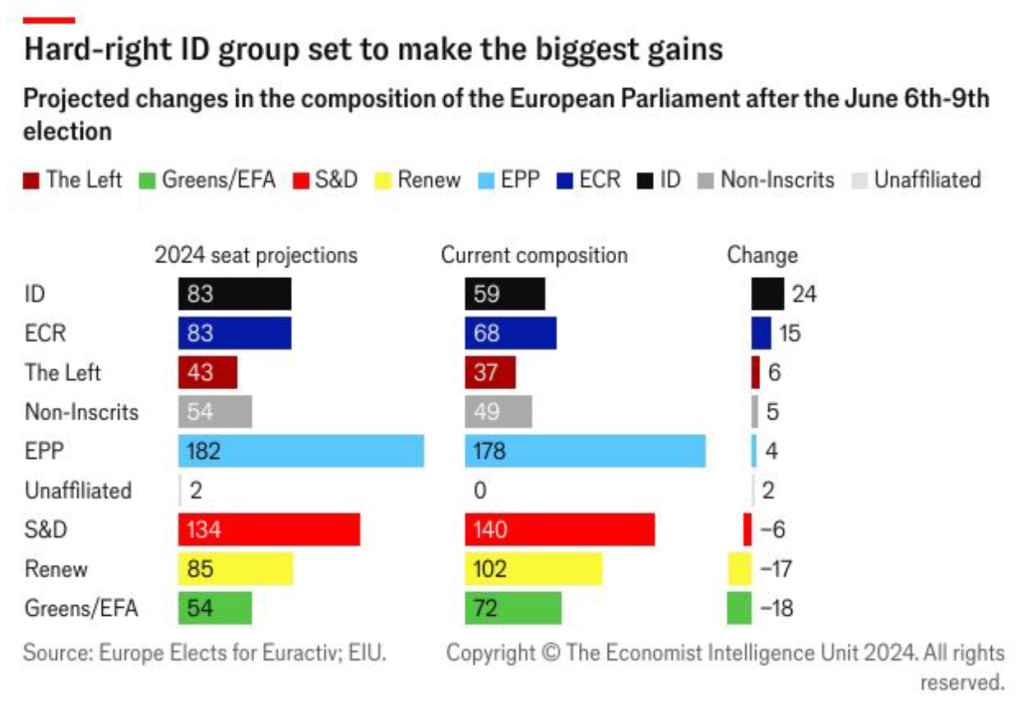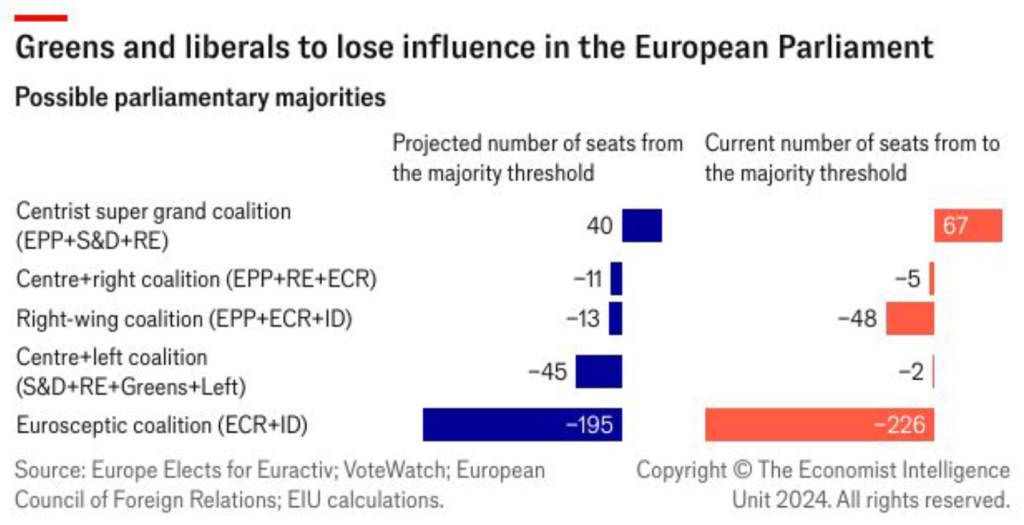
The EU’s green policies are likely to be deprioritised following the upcoming European Parliament elections, according to a recent webinar led by the Economist Intelligence Unit (EIU).
The webinar, led by the EIU’s regional director of Europe, Emily Mansfield; principal economist of Europe, Agnese Ortolani; and Europe analyst, Frances Li, discussed the implications of the upcoming European Parliament elections on various EU policies.

Discover B2B Marketing That Performs
Combine business intelligence and editorial excellence to reach engaged professionals across 36 leading media platforms.
The economists presented data and analysis formulated by the EIU.

Right-wing populist parties are set for the biggest electoral gains in this election while the Green Party will be “the biggest losers”, according to the EIU’s data.
The ID (Identity and Democracy) and ECR (European Conservatives and Reformists) parties are expected to win about 83 seats each, tying for fourth place.
Meanwhile, the Greens, currently the fourth largest group in parliament, will win 54 seats, down from 72, sitting below both ID and ECR after the elections.
The party’s loss is “a result of a growing backlash from citizens against green policies, with farmers taking to the streets across Europe,” Li said.
The centre-right EPP (European People’s Party) is set to take the majority of parliamentary seats, occupying 182 from a total of 720, four more than in the previous 2019 election. The centre-left S&D (Progressive Alliance of Socialists and Democrats) is likely to remain in second place but lose about six seats.
The liberal Renew Europe, although remaining the third biggest party, will likely suffer a significant loss of 17 seats.
The presenters suggested that along with the move to the right will result in a shift in support for legislation related to climate change and the environment, which have been largely influenced by left and centre-left parties over the last five years.

“They [left and centre-left parties] will struggle to continue pushing such legislations after June. Conversely, the number of MEPs that will oppose the EU Green Deal – and are likely to vote against all new legislations that enforce policies to meet the EU’s climate change targets – is set to increase,” Ortolani said.
Ortolani added that the centre and right-wing parties will likely shift focus from green legislation towards industrial and economic competitiveness. The backlash against green legislation, such as farmer protests, will also continue, adding to further reluctance to push forward new legislation.
“The trend we should expect in the next five years is having the EU Green Deal watered down slightly. This might ultimately put some pressure to change some of the existing climate targets as well,” she added.
However, Ortolani clarified that despite the imminent challenges, green policies will remain a “priority within the electorate” in the long term, given EU citizens’ consistent support for the fight against climate change as recent Eurobarometer reports and opinion polls have demonstrated.
The European Parliament elections will take place across all 27 EU Member States from 6 to 9 June 2024.






